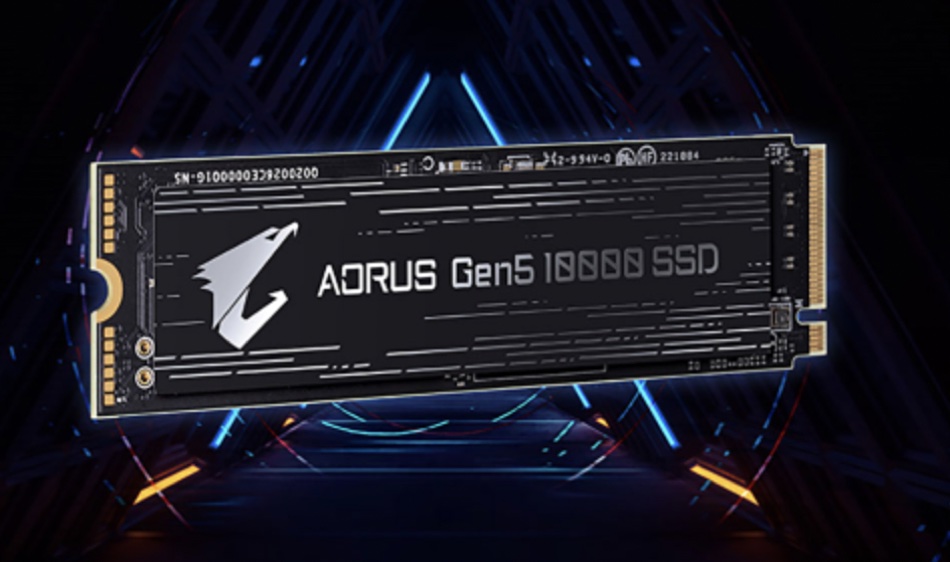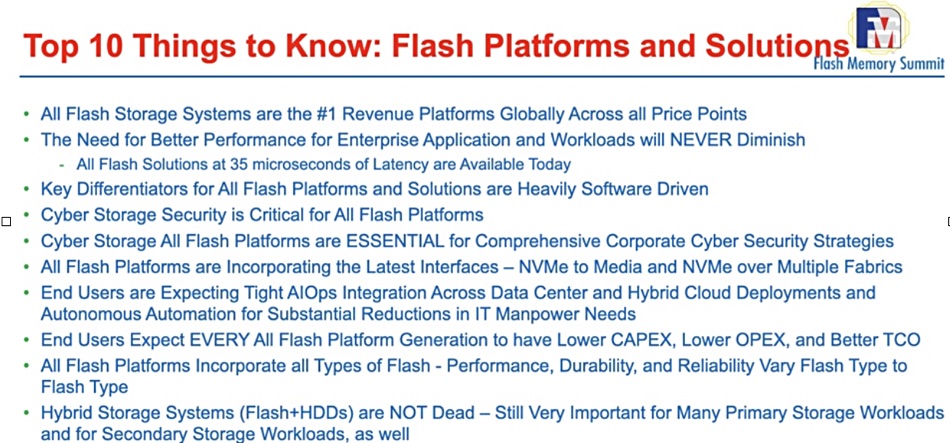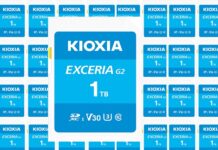Dell has updated its multi-hypervisor-supporting PowerFlex HCI software to v4.0, adding unified tools and UIs for lifecycle management and IT Ops with automated storage management across file and block storage services in the unified PowerFlex Manager. PowerFlex file services complement the existing block storage. NVMe/TCP protocol support has been added for extra host connectivity. There’s more information in a PowerFlex blog.
…
CXL momentum is building. Analyst Dylan Patel says every major semiconductor and datacenter company has joined the standard with a wave of first-generation devices nearing release. Products coming from some 20 companies will include CPUs, GPUs, and accelerators, switches, NICs, DPUs, IPUs, co-packaged optics, memory expanders, memory poolers, and memory sharers. Read this substack post to find out more.
…
Gigabyte has announced its Aorus Gen5 10000 SSD supporting PCIe 5 and with 200-plus layer 3D NAND in 1, 2 and 4TB M.2 22800 format. It delivers 1.3 million/1.16 million random read/write IOPS and 12.5/10.1 GB/sec sequential read/write bandwidth. The drives uses Phison’s PS5026-E26 8-channel controller and comes with a removable copper heat sink. The performance is on a par with other gaming gumstick PCIe 5 drives from ADATA and Apacer. For the latter it should be; they both use the same Phison controller.

…
Here is an Infinidat slide from an Eric Herzog presentation at FMS 2022, which makes some good general points:

…
Industry standards body JEDEC has published JESD220F: Universal Flash Storage 4.0. UFS 4.0 introduces significant bandwidth and data protection improvements over the earlier version of the standard. It leverages the M-PHY version 5.0 specification and the UniPro version 2.0 specification to double the UFS interface bandwidth and enable up to ~4.2 GB/sec for read and write traffic. The UFS 4.0 standard also Introduces a Multi-Circular Queue definition for more demanding storage I/O patterns, and an advanced RMPB interface allows increased bandwidth and protection for secure data. An update to the complementary JESD223E UFSHCI 4.0 standard, and a new companion standard for UFS version 3.1 and above, JESD231 File Based Optimization, have also been published. All three standards are available for download from the JEDEC website.
…
Open-source relational database supplier MariaDB has bought Cubewerx for its cloud-native geospatial technology for an undisclosed amount. It will offer it through its fully managed SkySQL service. CubeWerx manages data in tiers for extreme scale and high performance. It uses MariaDB to manage frequently used vector data (e.g. a geolocation) and for intelligent caching while relying on unlimited cloud storage for raster data which tends to be voluminous (e.g. satellite imagery). Data volume is no longer a limiting factor with this approach and geospatial data is able to grow to any scale.
Jags Ramnarayan, VP and gGM for SkySQL at MariaDB Corporation, said: “While other databases such as PostgreSQL and Oracle have added geospatial capabilities directly into the database, we are taking a modern cloud-native approach of managing virtually infinite amounts of geospatial data on low-cost, durable cloud storage and providing OGC standards-based REST APIs to access the data. We believe this approach will allow MariaDB to leapfrog the database world for geospatial application development.”
…
Intel and MinIO have jointly announced a stronger collaboration so that that MinIO’s object software can deliver better performance on Xeon processors. The two will “deliver superior performance across mission critical workloads, creating optimized infrastructure options for customers.” That’s it then; game over for AMD and Arm.
…
Napatech says it has reached the milestone of over 350,000 programmable SmartNIC port shipments and has more than 400 customers globally and using them in infrastructure processing (IPU) and data processing (DPU) designs. It says it’s the number one vendor of FPGA-based SmartNICS. Hyperscalers were the early adopters and more than 70 percent of all SmartNIC ports deployed globally are based on FPGAs.
…
Cloud file data services supplier Nasuni announced the immediate availability of Nasuni Access Anywhere, a file access offering for hybrid and remote workers based on the acquisition of Storage Made Easy (SME) back in June. Enterprises can extend the Nasuni File Data Platform to enable high-performance file access for the hybrid workforce and the ability to manage files from anywhere, and on any device. The add-on service is a secure VPN-less solution, enabling resilient access to files from any location. Access Anywhere integrates across Microsoft 365, Microsoft Teams and Slack, enabling frictionless collaboration through a single platform.








